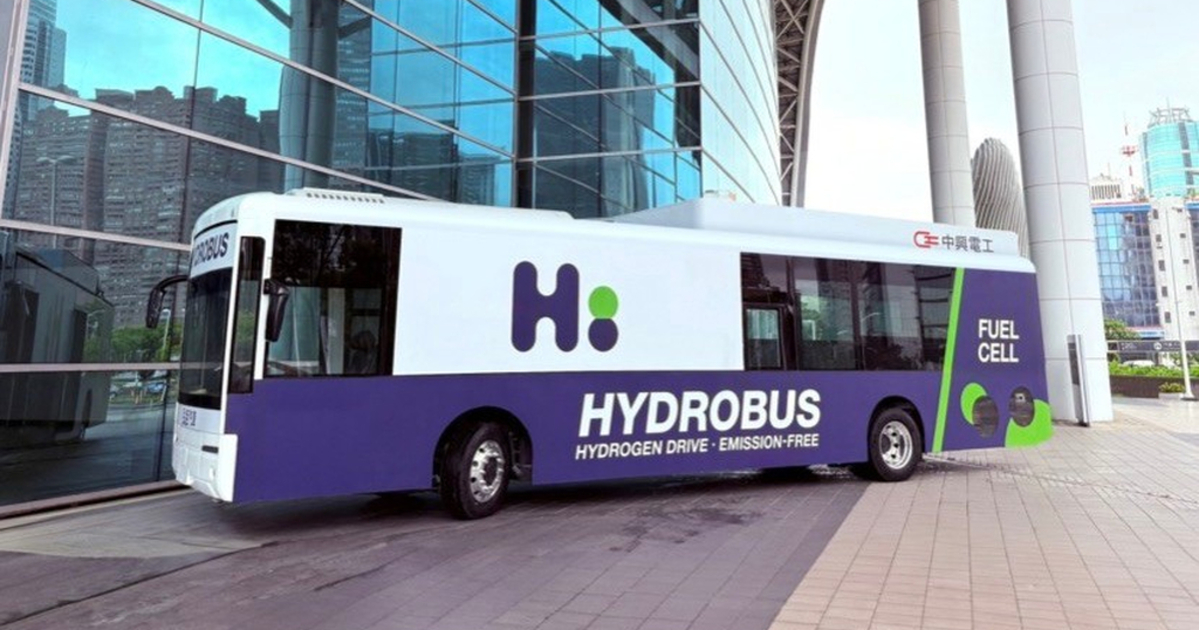Kaohsiung, Taiwan — Chung Hsin Electric and Machinery Manufacturing Corp. has joined forces with Huro Auto Co. to introduce a new hydrogen-powered bus, signaling a significant advancement in Taiwan’s pursuit of clean energy transportation. The two companies have outlined their vision to expand globally in the hydrogen bus industry over the next three years.
This milestone was revealed during a major electric bus exhibition and forum held in Kaohsiung, organized by Taiwan’s Ministry of Transportation and Communications (MOTC) and the Vehicle Safety Certification Center. The event brought together over 500 attendees, including vehicle manufacturers, public transit operators, energy experts, and transportation officials.
The showcase featured nine domestically produced electric buses and two hydrogen-powered models from international brands Toyota and Hyundai. However, the spotlight was on the hydrogen bus developed by Chung Hsin and Huro Auto, which drew attention for its advanced features and efficiency.
Built for demanding operations, the hydrogen bus can travel up to 365 kilometers and only takes 7 to 10 minutes to refuel. It is equipped with a high-pressure hydrogen system, on-board storage tanks, and a real-time monitoring system to ensure safe and stable performance.
Chung Hsin Electric contributed the core hydrogen power module, while Huro Auto handled the vehicle’s structural design and integrated the hydrogen fuel cell system, energy storage, and drivetrain into the bus chassis.
Hydrogen vehicles are increasingly seen as a sustainable solution due to their rapid refueling time, long range, quiet operation, and zero-emission output—making them ideal for public transportation systems.
Hu Ti-chi, director of the MOTC’s Department of Railways and Highways, announced that Taiwan’s first hydrogen fueling station for electric buses is now operating in Kaohsiung’s Nanzih District. The station, built in collaboration with CPC Corporation, can produce up to 300 kilograms of hydrogen per day—enough to refuel about seven buses daily.
Taiwan currently operates approximately 3,160 electric buses and is targeting full electrification of its 11,700 urban buses by 2030. Lin Fu-shan, director of the Highway Bureau, added that by the end of 2025, over 30% of Taiwan’s bus fleet is expected to be electric. He also encouraged transport companies to adopt AI-assisted driving technologies to enhance safety and performance.
As Taiwan continues to invest in clean transport solutions, it is positioning itself as a leader in sustainable mobility and green vehicle innovation.



